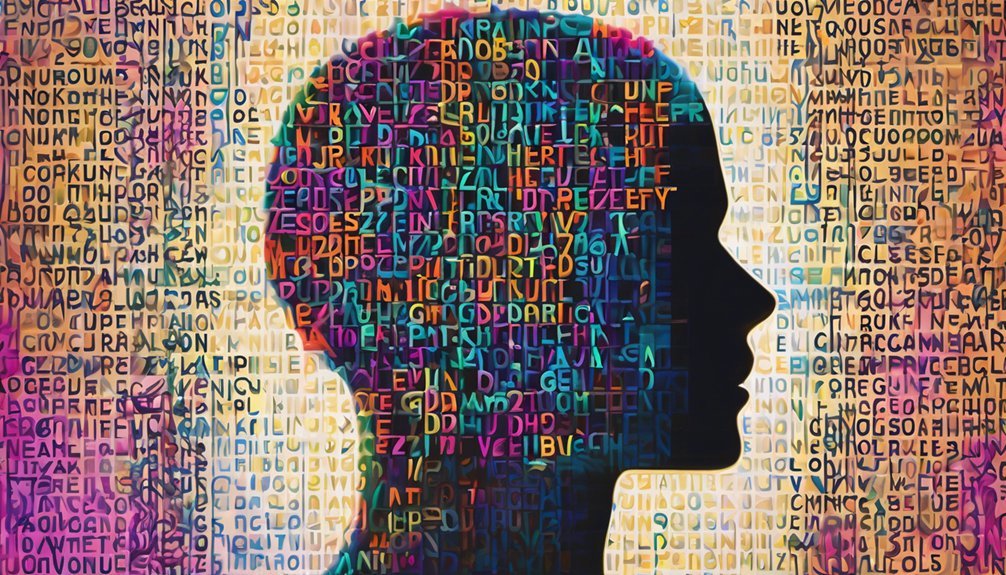The Science Behind Word Search Puzzles and Brain Function
When you engage in word search puzzles, you're not just passing time; you're activating a range of cognitive skills. The act of identifying hidden words requires keen pattern recognition and enhances your visual processing abilities. This process can significantly improve your memory recall and mental agility. As you navigate through these puzzles, you'll discover how they influence your overall brain function and potentially reshape your cognitive landscape. What implications does this have for your daily mental exercises?
Key Takeaways
- Word search puzzles enhance cognitive flexibility, allowing individuals to adapt to new patterns and improve problem-solving skills.
- They promote attention span and mental acuity by requiring focused efforts to locate hidden words efficiently.
- Regular engagement in puzzles strengthens visual processing and letter decoding abilities, improving overall cognitive efficiency.
- Memory recall plays a vital role in completing word searches, with strategies like chunking enhancing retrieval and cognitive connections.
- Solving word searches fosters mental agility, stimulating neural connections and contributing to overall brain health.
Understanding Cognitive Skills Involved in Word Searches

When you engage with word search puzzles, you're not just passing time; you're tapping into a range of cognitive skills that enhance your mental acuity.
One crucial skill is cognitive flexibility, which allows you to shift your thinking and adapt to new patterns as you search for words. This adaptability is vital, especially when you encounter tricky arrangements or similar letter combinations.
Additionally, working on these puzzles can significantly improve your attention span. As you focus intently on locating words, you train your brain to maintain concentration over extended periods.
This dual benefit of enhancing cognitive flexibility and attention span fosters a sense of belonging to a community of enthusiasts who appreciate the mental challenge and satisfaction these puzzles provide.
The Role of Pattern Recognition in Puzzle Solving
Recognizing patterns plays a pivotal role in solving word search puzzles effectively. When you engage with these puzzles, your brain actively seeks out familiar arrangements of letters, enhancing your pattern recognition skills.
This ability allows you to connect visual clues, such as the shape of words or the frequency of certain letters, to locate hidden terms quickly. Studies show that individuals who excel in pattern recognition tend to solve puzzles more efficiently, as they can identify clusters of letters that form words.
Visual Processing: How Your Brain Decodes Letters
Visual processing involves multiple cognitive functions that allow your brain to decode letters and understand the words hidden within a word search puzzle. As you engage in visual scanning, your brain quickly identifies patterns and sequences of letters. This process relies heavily on letter recognition, which enables you to differentiate between similar shapes and quickly spot familiar words.
Research shows that skilled word search solvers excel in these areas, enhancing their overall cognitive efficiency. When you practice these puzzles, you strengthen your visual processing abilities, making it easier to navigate complex patterns in everyday tasks.
Memory Recall and Its Importance in Word Searches

Although word search puzzles primarily engage visual processing, memory recall plays a crucial role in your ability to succeed at them. When you tackle these puzzles, employing effective memory strategies enhances your performance.
For instance, using recall techniques such as chunking words or associating them with familiar images can significantly improve your ability to find words quickly. This mental organization not only aids in retrieval but also strengthens your cognitive connections.
Engaging with these puzzles regularly allows you to refine these strategies, fostering a sense of belonging within a community of puzzle enthusiasts. By practicing these techniques, you not only enjoy the challenge of word searches but also sharpen your memory, making each session an opportunity for growth and connection.
The Impact of Word Searches on Mental Agility
As you engage with word search puzzles, you may not realize how much they contribute to your mental agility. These puzzles offer significant word search benefits by promoting cognitive engagement, which enhances your brain's flexibility and problem-solving skills.
Research indicates that regular participation in activities like word searches stimulates neural connections, helping to keep your mind sharp and responsive. You'll find that scanning for words requires quick thinking and pattern recognition, skills essential for mental agility.
Furthermore, the enjoyment of completing these puzzles fosters a sense of achievement, reinforcing your motivation to challenge yourself. By incorporating word searches into your routine, you not only entertain yourself but also actively strengthen your cognitive abilities, creating a fulfilling sense of belonging in the community of puzzle enthusiasts.
Enhancing Focus and Concentration Through Puzzles
When you immerse yourself in word search puzzles, you're not just having fun; you're actively training your brain to enhance focus and concentration. Research indicates that engaging in these concentration exercises can lead to significant focus improvement. As you search for words, your mind hones its ability to filter distractions and sustain attention on the task at hand.
| Focus Benefits | Concentration Techniques |
|---|---|
| Increased attention span | Time-limited puzzle sessions |
| Enhanced visual processing | Gradual difficulty increase |
| Improved memory recall | Mindful word hunting |
Word Searches as a Tool for Stress Relief

Engaging in word search puzzles not only sharpens your focus but can also serve as an effective tool for stress relief. These puzzles can provide a much-needed escape, allowing you to immerse yourself in a world of words, away from daily pressures.
Here's how they help:
- Cognitive distraction: Focusing on finding words diverts your mind from stressors, offering a mental break.
- Mindfulness practice: The repetitive nature of searching for words encourages a meditative state, promoting relaxation.
- Sense of accomplishment: Completing a puzzle boosts your confidence and elevates your mood, reinforcing positive feelings.
As a stress relief technique, word searches can enhance your mental well-being, fostering a sense of belonging in a community of puzzle enthusiasts.
The Connection Between Word Games and Neuroplasticity
While many people enjoy word games for entertainment, they also play a crucial role in enhancing neuroplasticity—the brain's ability to reorganize itself by forming new neural connections.
Engaging in word searches stimulates cognitive flexibility, allowing you to shift between tasks and adapt to new challenges. Research shows that regular participation in these games yields significant neuroplasticity benefits, including improved memory and problem-solving skills.
As you search for words and decipher patterns, your brain works harder, reinforcing existing pathways and creating new ones. This engagement fosters an environment where learning and growth flourish.
Incorporating Word Searches Into Your Daily Routine for Brain Health
Incorporating word searches into your daily routine can significantly enhance your brain health, as these puzzles require focused attention and cognitive effort.
By making word searches a part of your daily habits, you can experience several cognitive benefits:
- Improved Pattern Recognition: Regularly engaging with these puzzles sharpens your ability to identify patterns and connections.
- Enhanced Vocabulary: As you search for words, you expand your language skills and reinforce your memory.
- Stress Reduction: Taking time for a word search can serve as a calming break, reducing anxiety and promoting mental clarity.
Frequently Asked Questions
Can Word Searches Improve Vocabulary Skills Over Time?
Yes, word searches can enhance your vocabulary skills over time. By actively engaging with words, you promote vocabulary retention and cognitive engagement, making it easier to remember new terms and incorporate them into your everyday language.
Are There Age-Related Differences in Word Search Effectiveness?
You can't judge a book by its cover—age factors significantly influence cognitive development. Younger individuals often excel in word searches due to quicker processing speeds, while older adults may benefit from enhanced pattern recognition over time.
How Long Should I Spend on a Word Search for Optimal Benefits?
For optimal benefits, you should spend about 15 to 30 minutes on a word search. This time management allows for focus without fatigue, enhancing cognitive engagement and ensuring you enjoy the process while improving your skills.
Do Digital Word Searches Have the Same Benefits as Paper Ones?
Digital word searches offer similar cognitive benefits as paper ones, though you miss the tactile experience. Engaging with digital formats enhances convenience, but the sensory feedback of paper can deepen your connection and enjoyment during puzzles.
Can Word Searches Help With Learning Disabilities or Cognitive Impairments?
You might be surprised, but word searches can enhance word recognition and improve cognitive skills for those with learning disabilities. They provide a fun way to engage with language, fostering confidence and a sense of belonging.
Conclusion
Incorporating word search puzzles into your routine can significantly boost your cognitive abilities. Studies show that engaging in such puzzles regularly can enhance memory recall by up to 20%. By actively participating in these activities, you not only improve your attention span and problem-solving skills but also promote neuroplasticity, fostering a healthier brain. So, grab a word search today and give your mind the workout it deserves—it's a simple yet effective way to enhance your mental agility and overall brain health.








